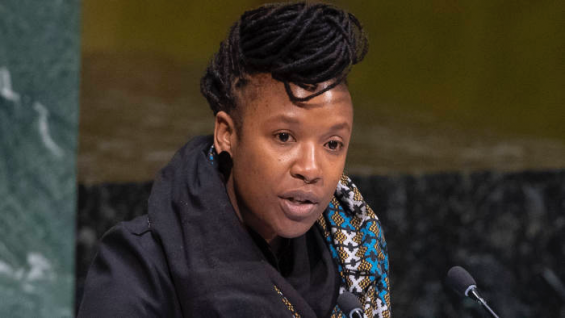The United Nations Special Rapporteur on contemporary forms of racism, racial discrimination, xenophobia and related intolerance Tendayi Achiume urged the Kingdom of Morocco to fulfill anti-discrimination and racial equality commitments in a recent report.
In its report, published July 8, the United Nations expert addressed the human rights situation in Morocco and forms of racism and discrimination, concluding that the country «must implement a comprehensive plan to satisfy its obligations to eliminate discrimination and achieve racial equality».
The Rapporteur’s findings were based on the fact that Morocco’s international human rights law commitments and laudable constitutional provisions «would languish without Government implementation through a domestic legal and policy framework».
Meanwhile, she acknowledged that Morocco’s 2011 Constitution carried a «vision of a diverse but unified society». However, she warned the country against abandoning the process it started, stressing that the government «must continue to work hard to implement» its commitments.
Discrimination against Amazigh communities and migrants
In her report, Achiume referred to the lack of a «comprehensive anti-discrimination legislation or specific law prohibiting racial discrimination». She explains that this trend has prevented government actors in the country from getting «much-needed guidance».
«The adoption of a new law, or amendments to existing legislation, are urgently needed to fully implement the racial equality framework contained in the International Convention on the Elimination of All Forms of Racial Discrimination».
Furthermore, the Zambian Rapporteur touched upon discrimination «faced by Amazigh communities», which experience, according to her, «structural exclusion and racist stereotyping on the basis of their Amazigh language and culture».
«Amazigh women reported that they often experienced multiple and intersecting forms of discrimination on account of their gender and their Amazigh identity», she reported.
Hence, the UN expert urged the Moroccan government to allow citizens with Amazigh heritage to enjoy «equal access to justice, freedom of opinion and expression, freedom of peaceful assembly and of association, and economic, social and cultural rights».
She has also referred to Article 5 of the Moroccan Constitution on the status of Amazigh language, calling the government to implement it through the adoption of organic law.
As for migrants and refugees, Achiume called for reforms targeting racial equality. «Although national law and policy guarantees a range of rights to migrants and refugees on an equal basis in all of these contexts, rights violations persist and discrimination remains a key barrier to integration», she concluded.
The UN expert warned against «all immigration enforcement policies that result in gross human rights violations», stressing that «regional and international actors, in particular the European Union and its member States, must take responsibility for the role they must play in ensuring migrants’ human rights in Morocco».
Replying of the findings of the UN Rapporteur, Ahmed Chawki Benyoub from the Interministerial Delegation for Human Rights said that the Kingdom is «not discriminating against Amazighs», citing the Kingdom’s cultural diversity.
Benyoub added that during her trip to Morocco, the Special Rapporteur was not able to visit the four major cities and couldn’t get «a realistic picture of the integration of regions that were isolated and marginalized for years».
As for migrants, Benyoub refuted the UN expert's conclusions, adding that the «Kingdom's firm commitment to fight against racism and discrimination is carried on».




 chargement...
chargement...












